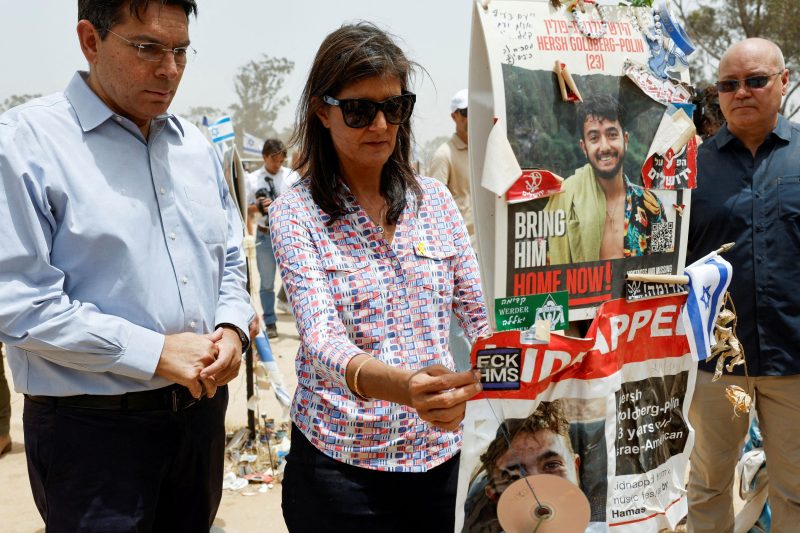In a recent controversial incident, former U.S. Ambassador to the United Nations Nikki Haley has faced criticism for inscribing Finish them on an artillery shell during her visit to the Israeli military in March. This action has sparked debates surrounding the implications and appropriateness of such messaging on instruments of warfare. While supporters defend Haley’s gesture as a show of solidarity with Israel and a demonstration of strength against adversaries, critics argue that such language normalizes violence and perpetuates a destructive cycle of conflict. In analyzing this incident, it is essential to consider the broader context of international relations and the impact of symbolic gestures in shaping perceptions and influencing diplomatic relations.
The act of inscribing a message on an artillery shell carries significant symbolic weight, as it merges the realms of diplomacy and military power in a visually striking manner. By choosing to write Finish them, Haley’s intended message of resolve and determination can be interpreted as a call for decisive action and unwavering commitment to achieving victory over perceived threats. In the context of Israel’s security concerns and ongoing conflicts in the region, such rhetoric may be seen as a means of projecting strength and solidarity with a key ally.
However, the use of language associated with combat and destruction on a weapon of war raises ethical questions about the role of diplomacy in conflict resolution. Critics argue that the inscription of a call to finish an opponent dehumanizes the enemy and reinforces a binary narrative of good versus evil, which can have dangerous consequences in fueling animosity and perpetuating violence. In a complex geopolitical landscape where tensions are high and diplomatic efforts are crucial, the choice of words and symbols can either escalate or defuse volatile situations.
Moreover, Haley’s action raises concerns about the blurring of lines between diplomacy and militarism, highlighting the intersection of political rhetoric with military actions. In an era marked by strategic messaging and information warfare, the symbolism of words and gestures in shaping public perception and influencing policy decisions cannot be underestimated. The act of inscribing a message on a weapon underscores the power of imagery and symbolism in shaping narratives and mobilizing public support for military actions.
As the debate surrounding Nikki Haley’s inscription on an artillery shell continues, it underscores the complexities of navigating diplomacy and military power in an increasingly interconnected world. The implications of such actions extend beyond the immediate context of the incident, serving as a reminder of the need for careful consideration and strategic communication in shaping perceptions and fostering meaningful dialogue. Ultimately, the intersection of politics, symbolism, and military power calls for a nuanced approach that balances strength with restraint and upholds the principles of diplomacy in resolving conflicts and promoting peace.

